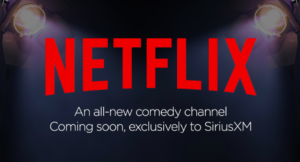Why Roku Is Selling Speakers: It's In The Voice
When you think Roku, the company behind the little streaming sticks that's built a big footprint in the booming online-video sector, you don't think of speakers, or audio in general.But that's exactly what the company announced this week, a $200 ($149 for preorders) pair of wireless speakers that tie into the company's latest TVs. The announcement caught some off guard, but to Randy Ahn, the company's director of programming, selling speakers was a natural progression."Roku is very concerned about the entire viewing experience," he told me on a panel I moderated this week at the EMA OTT summit in Hollywood. "And audio is an important part of that."The company's announcement went a bit further: "Because Roku controls the software in both the speakers and TV, Roku is uniquely able to provide seamless wireless setup and connectivity, optimize sound for the picture and ensure audio-video sync."So sound is important. But maybe not just for the reasons Roku mentions. The new speaker system includes both a voice-controlled remote and a separate device called a Roku Touch that the company described as "a battery-powered tabletop voice remote featuring a press-and-hold design for voice commands, playback control buttons and programmable preset buttons." "That's why they're doing it," said Frank Sinton, president and founder of Beachfront, the big ad-tech company that tracks a major portion of the ad-supported streaming-video business. "They’re behind Amazon and Apple in terms of voice-activated TVs. All of sudden that voice activation is getting big. The other factor that no one’s talking about, if it can do voice activation, it can do voice recognition."Like Amazon and Apple, Roku is investing in its own artificial intelligence tools to handle voice-powered search and navigation. It doesn't have the resources of those deep-pocketed giants, who are using AI on a variety of fronts. But AI and voice search can provide a huge improvement in the user experience of TV, especially in an era of hundreds or even thousands of streaming video sources, such as Roku delivers.And wrapping ads around those video sources, as Roku already does, will be a big business, Sinton said. Sooner than later, the digital assistants in homes will recognize not just that someone is talking to them, but a specific someone, and differentiate between those voices. Then the next step is to provide highly targeted online video ads to that specific person through their TV set."We're going more to people-based marketing, versus household-based marketing," Sinton said. "That’s huge. Nielsen can't do that."Roku's interface was used in about 25 percent of connected TVs sold in the United States in Q1, the company said. But it still trails leader Android TV significantly in market share. According to a study released this week by IHS Markit. various flavors of Android TV are in 40 percent of Smart TVs. Roku is in 6 percent.Roku has its own thriving ad-supported streaming channel now, showing live news and hundreds of licensed shows and movies, as well as the many dozens of other services the company's smart TVs and streaming devices can deliver.In some key ways, then, Roku is trying to become the Apple of the streaming business, providing tightly integrated experiences by providing (and controlling) the hardware, software and content, though it's doing it in an ad-driven way that Apple hasn't effectively pursued. Adding the speakers closes that loop for consumers who want a good, self-contained "TV" experience in the streaming era.The announcement comes at a time when Apple itself has struggled with how to make, and make money from, a long-rumored Apple-branded television. Sources in the industry tell me that margins on even high-end TVs are no more than 10 percent, and on low-end sets as little as 1 percent. That's far below the margins of around 40 percent that Apple has typically enjoyed on its hardware.The Apple TV streaming device (with prices starting at $149) trails Roku in market share, and doesn't carry quite the breadth of channel options, though it does offer 4K HDR programming (again, my sources dispute how "4K" the the upscaled content may be), gaming and other features.Apple's venture into home audio, the $349 HomePod, has been slow to catch on, too. Critics have loved the audio quality, but not initial software limitations (though Airplay 2's release fixed many of those issues). More importantly, the HomePod's integration with the Siri digital assistant hasn't been as powerful or useful as Amazon's seemingly ubiquitous Alexa.
"That's why they're doing it," said Frank Sinton, president and founder of Beachfront, the big ad-tech company that tracks a major portion of the ad-supported streaming-video business. "They’re behind Amazon and Apple in terms of voice-activated TVs. All of sudden that voice activation is getting big. The other factor that no one’s talking about, if it can do voice activation, it can do voice recognition."Like Amazon and Apple, Roku is investing in its own artificial intelligence tools to handle voice-powered search and navigation. It doesn't have the resources of those deep-pocketed giants, who are using AI on a variety of fronts. But AI and voice search can provide a huge improvement in the user experience of TV, especially in an era of hundreds or even thousands of streaming video sources, such as Roku delivers.And wrapping ads around those video sources, as Roku already does, will be a big business, Sinton said. Sooner than later, the digital assistants in homes will recognize not just that someone is talking to them, but a specific someone, and differentiate between those voices. Then the next step is to provide highly targeted online video ads to that specific person through their TV set."We're going more to people-based marketing, versus household-based marketing," Sinton said. "That’s huge. Nielsen can't do that."Roku's interface was used in about 25 percent of connected TVs sold in the United States in Q1, the company said. But it still trails leader Android TV significantly in market share. According to a study released this week by IHS Markit. various flavors of Android TV are in 40 percent of Smart TVs. Roku is in 6 percent.Roku has its own thriving ad-supported streaming channel now, showing live news and hundreds of licensed shows and movies, as well as the many dozens of other services the company's smart TVs and streaming devices can deliver.In some key ways, then, Roku is trying to become the Apple of the streaming business, providing tightly integrated experiences by providing (and controlling) the hardware, software and content, though it's doing it in an ad-driven way that Apple hasn't effectively pursued. Adding the speakers closes that loop for consumers who want a good, self-contained "TV" experience in the streaming era.The announcement comes at a time when Apple itself has struggled with how to make, and make money from, a long-rumored Apple-branded television. Sources in the industry tell me that margins on even high-end TVs are no more than 10 percent, and on low-end sets as little as 1 percent. That's far below the margins of around 40 percent that Apple has typically enjoyed on its hardware.The Apple TV streaming device (with prices starting at $149) trails Roku in market share, and doesn't carry quite the breadth of channel options, though it does offer 4K HDR programming (again, my sources dispute how "4K" the the upscaled content may be), gaming and other features.Apple's venture into home audio, the $349 HomePod, has been slow to catch on, too. Critics have loved the audio quality, but not initial software limitations (though Airplay 2's release fixed many of those issues). More importantly, the HomePod's integration with the Siri digital assistant hasn't been as powerful or useful as Amazon's seemingly ubiquitous Alexa. Other streaming companies are also getting audio into their mix. Netflix and Sirius XM announced a deal to create an audio-only comedy channel out of the vast supply of stand-up specials and other material in the Netflix library.Netflix, which saw its share prices plunge 13 percent on Monday when it missed quarterly projections on subscriber growth (it still added 5 million subscribers, and now has 130 million worldwide), noted a string of bundles and partnerships it has signed with pay-TV providers around the world. Such deals have been an effective way to cheaply acquire new customers, the company noted in its latest shareholder newsletter.The SiriusXM deal looks like variant of that, leveraging content that doesn't rely much or at all on visuals for is entertainment value. It's a smart deal for both sides, giving XM content from an array of top comedians and Netflix another way to leverage and amortize its significant investments in comedy specials.And coming from the other direction, music streaming giant Spotify just hired Hollywood veteran Dawn Ostroff to take over its video initiatives. Spotify is the world's largest streaming music service, with 170 million "active users," and 75 million paying subscribers.But several previous efforts to expand into video – to better compete with Netflix and an expected Apple bundle of music, news and video – has repeatedly failed to come together. Ostroff, a highly respected TV executive who previously headed the CW network and Conde Nast Entertainment, might be the person to finally bring video to the king of streaming sound.
Other streaming companies are also getting audio into their mix. Netflix and Sirius XM announced a deal to create an audio-only comedy channel out of the vast supply of stand-up specials and other material in the Netflix library.Netflix, which saw its share prices plunge 13 percent on Monday when it missed quarterly projections on subscriber growth (it still added 5 million subscribers, and now has 130 million worldwide), noted a string of bundles and partnerships it has signed with pay-TV providers around the world. Such deals have been an effective way to cheaply acquire new customers, the company noted in its latest shareholder newsletter.The SiriusXM deal looks like variant of that, leveraging content that doesn't rely much or at all on visuals for is entertainment value. It's a smart deal for both sides, giving XM content from an array of top comedians and Netflix another way to leverage and amortize its significant investments in comedy specials.And coming from the other direction, music streaming giant Spotify just hired Hollywood veteran Dawn Ostroff to take over its video initiatives. Spotify is the world's largest streaming music service, with 170 million "active users," and 75 million paying subscribers.But several previous efforts to expand into video – to better compete with Netflix and an expected Apple bundle of music, news and video – has repeatedly failed to come together. Ostroff, a highly respected TV executive who previously headed the CW network and Conde Nast Entertainment, might be the person to finally bring video to the king of streaming sound.

